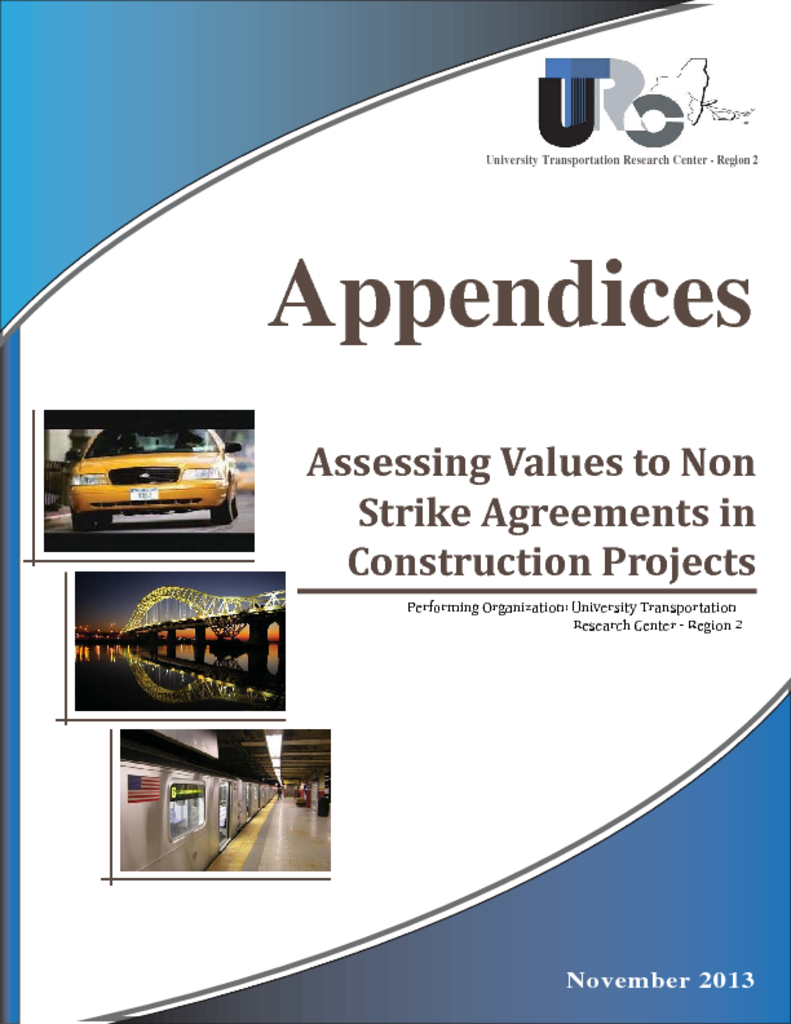This study represents the state of good practice economic theory and models and concludes that there is, indeed value to non-strike agreements in construction projects. Certainly, every major construction project – especially public projects that must go through rigorous Benefit Cost Analyses to gain funding – has an intrinsic value to its owner. However, as is well documented in construction work, all projects have elements of risk. In fact the levels of risk are included in both the owner’s budget and in the contractor’s estimate. Risk (or contingency) is an attempt by each to quantify the unknown. Certainty of labor agreements is one means of reducing the unknown factors of risk. The literature- and experience – show that labor stoppages can have significant cost impacts – not only to the given project, but also to conditions external to the project. Thus, labor agreements; such as Project Labor Agreements (PLA) have been adopted to minimize the probability of labor disruptions. The report shows – using case studies and economic theory – that there is an added value to each side – the owner and labor – in participating in such an agreement, including a no strike agreement. Through case studies, the researchers show the value of such agreements and present a simple model to be used for similar cases. It is important to note that each construction job is unique; each agreement would be unique. Local environment, construction seasons, type of construction, local codes, local labor agreements all reinforce such uniqueness. However, the broad premise that each job has an intrinsic value – that incorporates risk – is true for all projects.




